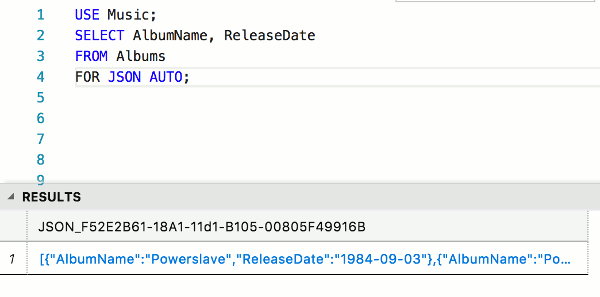
As a first glimpse of the syntax and a demonstration of this limitation:

Almost all data types are supported, with the exception of complex CLR types (geometry, geography, and any custom CLR types you use). And you'll be able to persist and index computed columns based on values extracted from the JSON string that is stored. Compression, encryption, and both types of Columnstore indexes will be supported. JSON will be supported in Hekaton In-Memory OLTP (even in natively compiled stored procedures) right out of the gate, though when used there you will have the same no-LOB and 8,060 byte limits we've grown to know and love. (Just remember that this is a V1, and like many other V1 features, should get better as it matures.) It will be case sensitive, collation unaware, there will be no strict schema support, and it will be substantially less elaborate than, say, PostgreSQL's JSON support. But there will be extensions to T-SQL to support moving JSON data in and out of relational forms, much like we already have for XML - like FOR JSON PATH, FOR JSON AUTO, ISJSON(), JSON_QUERY(), JSON_VALUE(), JSON_MODIFY(), and OPENJSON(). There is not going to be a JSON data type or any special kind of index you would just store it as a traditional string (or extract relational data as a JSON string). And I want to do that because, even though I don't have a direct need for JSON support myself, I've heard that as an argument against SQL Server a number of times (though it is often difficult to gauge how serious people are when they say that).įirst of all, this is going to be standard functionality available in all editions, even Express. I can't get into too many technical details just yet, and I'm not even sure how much functionality will actually be available in the forthcoming CTP, but I can share a little bit from what I've been able to play with so far. I was at MS Ignite last week, and attended the Foundational Keynote, entitled " The SQL Server Evolution." In that session they announced a new feature that will be available in the next version of SQL Server (and that you will get to play with in some capacity when CTP2 is released later this year): JSON.


 0 kommentar(er)
0 kommentar(er)
